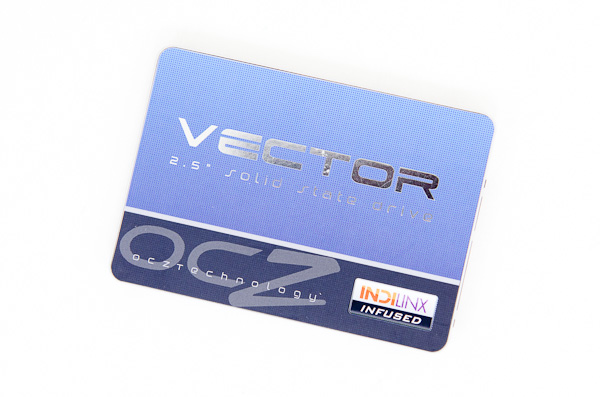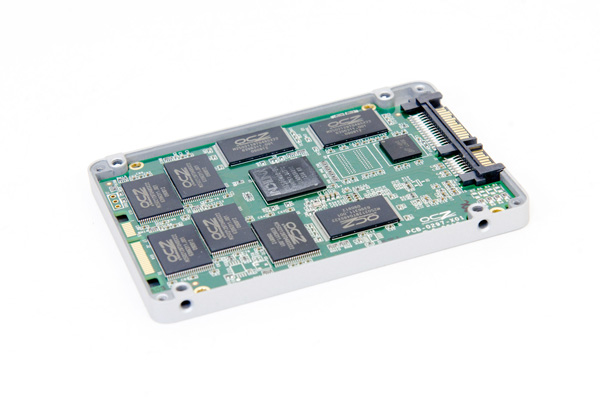OCZ Vector (256GB) Review
by Anand Lal Shimpi on November 27, 2012 9:10 PM ESTFinal Words
With the Vector, OCZ has built a price and performance competitor to Samsung's SSD 840 Pro, which previously remained peerless at the top of our charts. For a company that just weeks ago was considered down and out for the count, this is beyond impressive. Samsung has emerged as one of the strongest players in the consumer SSD space, and OCZ appears ready to challenge it. In our tests, Samsung typically enjoys better peak performance, but OCZ's Vector appears to have the advantage when it comes to worst case performance and IO consistency. The latter tend to be more valuable in improving overall user experience in my opinion. I would still like to see an S3700-class client drive and I'd be willing to give up top-end performance to get there, but I suspect that's a tall order for now.
The Vector's power consumption under load, given the performance it's able to deliver, is excellent. I wish idle power consumption were better, making the 830/840 Pro a better fit for ultra mobile applications. But under load the Vector and 840 Pro are indistinguishable from one another.
The only downside to the Vector really is its price, which like the 840 Pro is at a definite premium vs competition from the previous generation. As with all SSDs however, I fully expect Barefoot 3 and maybe even the Vector itself to fall in price over time. If you want the latest and greatest available today, Samsung's 840 Pro now has competition in OCZ's Vector.
The Barefoot 3 controller is quite promising. It certainly seems very capable from a performance standpoint without blowing through its power budget. It's no small feat if OCZ's best in-house silicon can be spoken of in the same sentence as Samsung's. The PLX and Indilinx acquisitions appear to have paid off. I'm curious to see how OCZ's improved validation and reliability testing fare in the long run. This isn't the first time that OCZ has promised to focus more on validation, but with Vector I do get the feeling that things are different. I didn't run into any compatibility issues or reliability problems with the Vector in my testing, but as always the proof is what happens when these drives make their way into the hands of end users.
Overall I'm impressed by the Vector. It's a huge improvement over the already good Vertex 4, and manages to compete in a different league by fixing some lingering performance issues with its predecessor. I had resigned myself to assuming no one would come close to Samsung on the high-end, but it's good to be proven wrong. Should OCZ be able to deliver Samsung-like performance and reliability, then I'll really be impressed.












151 Comments
View All Comments
rob.laur - Monday, December 3, 2012 - link
the 840 Pro has terrible recovery when pushed hard.http://www.tomshardware.com/reviews/vector-ssd-rev...
jwilliams4200 - Tuesday, December 4, 2012 - link
I certainly would not call it "terrible" -- it actually looks pretty good to me. And if you want even better performance under sustained heavy workloads, just overprovision the SSD.dj christian - Monday, February 4, 2013 - link
How do you overprovision the SSD?somebody997 - Thursday, April 11, 2013 - link
You don't. Most SSDs will come in 128, 256 or 512 GB sizes. If you have an SSD and you see a decrease in size, usually at 120, 240 or 480 GB sizes, it means the controller has already over provisioned the SSD for you.batguiide - Sunday, December 9, 2012 - link
Thanks for these tips!share a website with you :socanpower,ca,You will love it! I believe!
jdtwoseven - Monday, December 10, 2012 - link
I have WAY too much scar tissue from this vendor to ever buy their products again. I bought five of their SSDs, and was five for five RMAing them back. I have the replacements, but don't trust them enough to use them in anything other than evaulation work because them are just not dependable. I would avoid them like the plague.somebody997 - Thursday, April 11, 2013 - link
I have had multiple SSDs from OCZ, and none of them have failed up till today. I boot Mac OS X from my OCZ Vector, and from every OCZ SSD before that. In my experience, it's not the OCZ SSDs that have terrible reliability, it's Windows. Besides, have any of you guys complaining about OCZ SSDs ever tried turning off automatic disk defragmentation in Windows?Windows has an automated disk defragmenting tool to defragment HDDs, but when you plug in an SSD, the tool is automatically disabled.
Chances are, those of you with SSD problems have a PC with windows that did not successfully disable automated disk defragmentation, and have had your SSDs killed due to that.
Mac OS X does not have an automated disk defragmenting tool as it generally tries not to write in fragments. Without the automated defragmentation tool, my OCZ SSDs have never failed.
ewh - Tuesday, April 30, 2013 - link
My Vector 256 drive completely failed in just under 4 months. OCZ is going to replace it but if the replacement fails in less than 48 months I will look for alternatives.jhboston - Wednesday, May 8, 2013 - link
My OCZ VTR1-25SAT3-512G failed after just 33 days. This was 3 days after the vendors replacement agreement expired. Has to go to OCZ, OCZ is replacing the drive, but they are following a delayed time frame to get the new drive in my hands.djy2000 - Wednesday, July 31, 2013 - link
Ok my OCZ vector catastrophically failed within 3 months :-( Think I'll be going with intel or samsung next